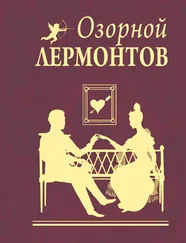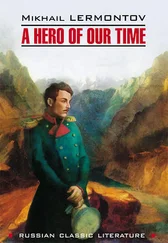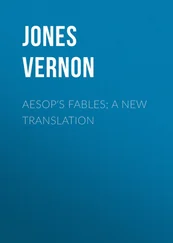“And what is your name, my songbird?”
“Whoever christened me knows.”
“Who christened you?”
“How should I know?”
“What secrecy! But I have found out something about you.”
Her face didn’t change, her lips didn’t stir; it was as if the matter didn’t concern her.
“I found out that you went to the shore last night.”
And then, with great emphasis, I related to her everything that I had seen, thinking it would disturb her—not in the least! She burst into loud laughter.
“You have seen much, but know little. So keep it under lock and key.”
“And what if I, for example, thought to take this to the commandant?” Then I adopted a very serious, even severe, stance. She suddenly leapt up, broke into song, and escaped like a little bird that has been flushed out of a bush. My last words were entirely inappropriate. At the time, I didn’t suspect their importance, but afterward I had the opportunity to regret them.
As soon as it became dark, I ordered the Cossack to heat the kettle, as he would in the field, and I lit the candle and sat at the table, smoking from my traveling pipe. I had finished a second cup of tea, when suddenly the door creaked, and I heard steps and the light rustle of a dress behind me. I shuddered and turned—it was her, my water sprite! She sat down opposite me, quietly and wordlessly, and aimed her eyes at me, and I don’t know why but this gaze seemed miraculously gentle to me. It reminded me of those gazes that, in the old days, had so tyrannically toyed with my life. She, it seemed, was waiting for a question, but, full of inexplicable confusion, I didn’t say anything. A dull pallor had spread over her face, indicating a disturbance of the soul. Her hand wandered around the table without aim, and I noticed a light trembling. Her breast would rise up high at times; at other times she seemed to be holding her breath. This comedy had started to bore me, and I was ready to break the silence in the most prosaic way, that is, by offering her a glass of tea, when suddenly she jumped up, threw her arms around my neck, and a moist, fiery kiss sounded on my lips. My vision darkened, my head was spinning, I squeezed her in an embrace with all the strength of youthful passion, but she, like a snake, slipped from my arms, whispering in my ear: “Tonight, when everyone goes to sleep, go down to the shore.” And like an arrow she ran out of the room, knocking over the candle and the kettle that stood on the floor by the entrance.
“What a she-devil!” cried out the Cossack, who was dreaming about heating up the remains of the tea, having made himself comfortable in the straw. Only then did I come to my senses.
After about two hours, when everything had fallen silent at the jetty, I roused my Cossack.
“If I fire my pistol,” I said to him, “then run down to the shore.”
He opened his eyes widely and replied mechanically, “Yes, sir.” I thrust my pistol in my belt and left. She was waiting for me at the edge of the slope; her attire was very light, a small shawl wrapped around her lithe figure.
“Come with me!” she said, taking me by the hand, and we started to descend. I don’t understand how I didn’t break my neck. At the bottom we turned right and went down the very path along which I had followed the blind boy yesterday. The moon hadn’t yet risen, and only two little stars, like two rescue beacons, glittered in the dark-blue vault of the sky. Heavy waves rolled in one after the next, rhythmically and evenly, barely lifting the little boat moored to the shore.
“Let’s get into the boat,” said my companion. I hesitated—I am not an enthusiast of sentimental outings on the sea—but it wasn’t the moment to back down. She hopped into the boat, with me after her, and I hadn’t quite come to my senses before I noticed we were drifting off.
“What does this mean?” I said angrily to her.
“It means,” she replied, sitting me down on the bench and winding her arms around my shoulders, “it means that I love you…”
Her cheek pressed to mine, I felt her burning breath on my face. Suddenly something fell loudly into the water. I grabbed at my belt, but the pistol was gone. Oh, what a terrible suspicion crept into my soul, while blood surged to my head. I look around—we are about fifty sazhens from the shore, and I can’t swim! I want to push her away from me, but like a cat, she had seized hold of my clothing and suddenly, with a strong shove, nearly threw me into the sea. The boat began to rock, but I got the better of it, and a desperate struggle began between us. Rage imparted me with strength, but I quickly noticed that I was inferior to my opponent in dexterity…
“What do you want?” I cried, firmly grabbing her little hands. Her fingers crunched, but she didn’t cry out: her snakelike nature could endure such torture.
“You saw,” she responded, “and you will inform!” And with supernatural exertion she toppled me to the side of the boat. We were both hanging over the edge of the boat from the waist. Her hair was touching the water. It was a decisive moment. I braced myself against the bottom of the boat with my knee and grabbed her braid with one hand and her throat with the other. She let go of my clothing, and I threw her into the waves in an instant.
It was already rather dark; her head flashed a couple of times in the sea foam; then, nothing more…
At the bottom of the boat I found half of an old oar, and somehow, after prolonged effort, got it moored to the jetty. Stealing along the shore toward my peasant house, I couldn’t help glancing over to the place where yesterday the blind boy had waited for the night mariner. The moon had already rolled across the sky, and it looked to me as if someone in white was sitting at the shoreline. I crept up, with excited curiosity, and lay flat on the grass on top of the precipice, sticking my head a little over the edge. I could well see everything that was happening below from the cliff, and I wasn’t much surprised, but was rather gladdened to recognize my rusalka there. She was squeezing sea foam from her long hair. Her wet slip outlined her lithe figure and raised breasts. Soon a boat appeared in the distance; it was approaching fast. A man wearing a Tatar hat stepped out of the boat as he had the day before, but his hair was cut like a Cossack’s, and a large knife stuck out from the leather of his belt.
“Yanko,” she said, “all is lost!”
Then their conversation continued but so quietly that I couldn’t hear a thing.
“And where is the blind boy?” said Yanko finally, raising his voice.
“I sent him for something,” was the answer.
The blind boy appeared after a few minutes, lugging a sack, which he put down in the boat.
“Listen, blind boy!” said Yanko. “You stay put here… you hear? Those are precious goods… Tell (I didn’t catch the name) that I’m not his servant anymore. The matter went badly; he won’t see any more of me. It’s too dangerous now. I am off to find work in another place, and he’ll never find a daredevil like me again. Yes, tell him that if he had paid better, then Yanko wouldn’t have left. There are paths open everywhere to me, wherever the wind blows and the sea stirs!”
After a certain silence, Yanko continued. “She’s coming with me. She can’t stay here. And tell the old woman that it’s time to die, she’s lived longer than she should have, and it’s time she went. And she won’t see the likes of us again.”
“And what about me?” said the blind boy in a plaintive voice.
“What are you to me?” was the reply.
In the meantime my water sprite had jumped into the boat and waved her hand at her companion, who put something in the blind boy’s hand, saying: “Here, buy yourself some gingerbread.”
Читать дальше
Конец ознакомительного отрывка
Купить книгу
![Михаил Лермонтов A Hero of Our Time [New Translation] обложка книги](/books/27671/mihail-lermontov-a-hero-of-our-time-new-translati-cover.webp)










